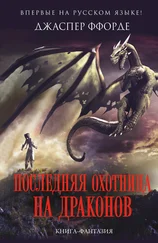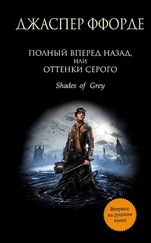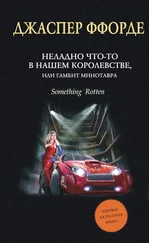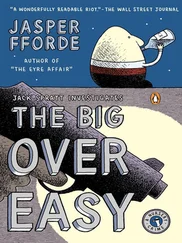“The Six has been released?” asked Sprockett, who had a vested interest in the competition. To sentient machines the primary cause of worry was obsolescence, closely followed by metal fatigue and inadequate servicing.
“It was launched just after the remaking,” said the guard, “but I’ve not seen one yet.”
“They must have rushed them into production,” murmured Sprockett. “A risk, if they’re still at the beta-test stage.”
I suggested to Sprockett that he nip into the local Stubbs and not have a coffee or two until I returned, to which he gratefully acquiesced.
After signing the visitors’ book and a risk assessment that included “erasure, swollen ankles and death by drowning,” I was issued a visitor’s pass and allowed to walk up the graveled path towards the house. Since we were now actually within the backstory of Sense and Sensibility, the view upwards was not of the rest of the BookWorld—the curved inside of the sphere and books moving about—but of clouds and a clear blue sky. The trees gently rustled as though in a breeze, and the herbaceous borders were alive with a delicate symphony of color. This was one of the better attributes of the Reader Feedback Loop. When readers imbue a book with their own interpretations, the weather always comes first, then colors, symmetry, trees, architecture, fixtures and fittings and finally texture. Birdsong, however, is generally not something brought alive by the reader’s imagination, so the birds still have to be provided. Since we were now in the unread zone of the novel, the birds were either off-duty or populating another book elsewhere. There is a certain degree of economics within the BookWorld; Austen birds are the same as Brontë ones—listen carefully and you’ll hear.
I stopped at the front door to Norland Park and gave my name to the footman, who looked as much like a frog as you can without actually being one. He gazed at me for a long time and opened his eyes so wide I thought for a moment they might fall out, and I readied myself with a pocket handkerchief in case they did. But they didn’t fall out, and after another minute’s thought he relaxed and said, “You do look like her, don’t you?”
I thought of telling him that he looked very much like a frog but thought better of it.
“You’re the first person not to confuse me with her for a while,” I remarked. “How did you know?”
“The real Thursday always ignored me,” he replied, “walked past without a word. But never in a bad way—she always did it respectful like.”
“Do you get ignored a lot?”
“I do, and not just by ordinary citizens. I’ve been ignored by some of the greats, you know.” He then proceeded to list twenty or so major characters who hadn’t acknowledged his existence on a regular basis. He had a particular fondness for David Copperfield, whom he had escorted almost three hundred times “without a glance in my direction.”
“That must be quite upsetting.”
“I’m a footman,” he explained. “We’re trained to be not-there-but-there. Being ignored is the yardstick of a footman’s professional abilities. My father was sixty-seven years in the employ of the first Lord Spongg and wasn’t acknowledged once. He went to his grave a fulfilled man. If you want to be ignored by the movers and shakers of the BookWorld,” concluded the frog-footman proudly, “this is the place to do it.”
“You’ve very fortunate,” I said, humoring him. “Some people don’t get to be ignored at all.”
“Don’t I know it,” he replied, licking the end of his pencil and consulting his clipboard. “Now, reason for visit?”
“I’m to see Mr. Lockheed at Accident Investigation.”
“Correct. This way.”
The entrance hall was large and empty except for a round mahogany table in the middle, upon which stood a vase of flowers. The way to Herring’s office took us past the ballroom, from which Jurisfiction’s agents were given their instructions and posted to all corners of the BookWorld to face adversaries so dangerous that it was truly astonishing that anyone ever survived. I had been in there a few times when I’d been a trainee of the real Thursday, but I hadn’t visited since I failed my training day. I slowed my pace as we passed, for the door was open and I could see Jurisfiction’s elite talking and laughing. I recognized Emperor Zhark and a large hedgepig that could only be Mrs. Tiggy-winkle. The Red Queen was there, too, and several others.
The frog-footman coughed his disapproval, and we made to move on. But at that moment a short man in late middle age and dressed as a big-game hunter stepped out of the open door. He was wearing a pith helmet and a safari suit, and across his body was slung a Sam Brown belt and holster, with the outfit finished off by a pair of brown leather riding boots. Since Thursday’s disappearance, he was probably the third-most-important person in the BookWorld after Senator Jobsworth and Red Herring. His name was Commander Bradshaw, and his expert guidance at Jurisfiction had kept the agency at the top of its game for almost as long as anyone could remember—his exploits ensured that he was hardly ever off the front page of The Word, and his much-updated BookWorld Companion was the definitive work on the BookWorld, both before and after the remaking.
He was deep in conversation with a youngish agent. I felt out of place, so I looked straight ahead and quickened my pace. But he noticed me and without pausing for a second took me firmly by the arm and steered me to an alcove.
“Thursday,” he hissed in an agitated manner, “why are you dressed in those ridiculous clothes, and where in heaven’s name have you been?”
“I’m not her, sir. I’m the one who looks after her series. I’m actually A8-V-67987-FP.”
He frowned, then stared at me for a moment. “You’re telling me you’re the written one?”
I nodded, and he burst into laughter.
“Well, strike me pink!” he said. “You gave me a turn and no mistake. I was . . . ah, expecting Thursday to be here any moment,” he added, looking at his watch in an unsubtle manner. “I suspect she has been delayed.”
His explanation didn’t ring true at all. Thursday was definitely more missing than he would like me to know. We returned to where Bradshaw’s companion was waiting for us. He was studiously ignoring the frog-footman, who for his part was accepting the snub with quiet dignity.
“I’d forgotten just how identical you looked,” he said. “Are you keeping well?”
“I am, sir,” I managed to mumble. “I trust you are well read?”
It was a stupid gaffe; Bradshaw’s brand of jingoistic Imperialist fiction hadn’t been read for a half century. But he took no offense.
“Not read anymore, and quite right, too,” he said laughingly, then stared at me for a while before saying to his companion, “You’ve met the other Thursday, the real one?”
“Sure have,” he replied. “One helluva goddamn fine operative.”
“Look alike, don’t they? Apart from the clothes, of course.”
“Like two peas in a pod.”
Bradshaw thought for a moment. “Has Thursday been down to see you recently?” he asked me with an air of feigned nonchalance.
“Not since the remaking, sir,” I replied. “May I ask a question?”
“Of course.”
“Am I to understand that Thursday Next is . . . missing ?”
“She’s currently on leave in the RealWorld,” he said in a dismissive manner, “enjoying some time off with her family before the peace negotiations on Friday.”
“Are you sure about that? I saw—”
I checked myself. I could get into big trouble for sneak-peeking the RealWorld, and the Lady of Shalott could get into bigger trouble for letting me.
Читать дальше











![Джаспер Ффорде - Вечный кролик [litres]](/books/436518/dzhasper-fforde-vechnyj-krolik-litres-thumb.webp)
